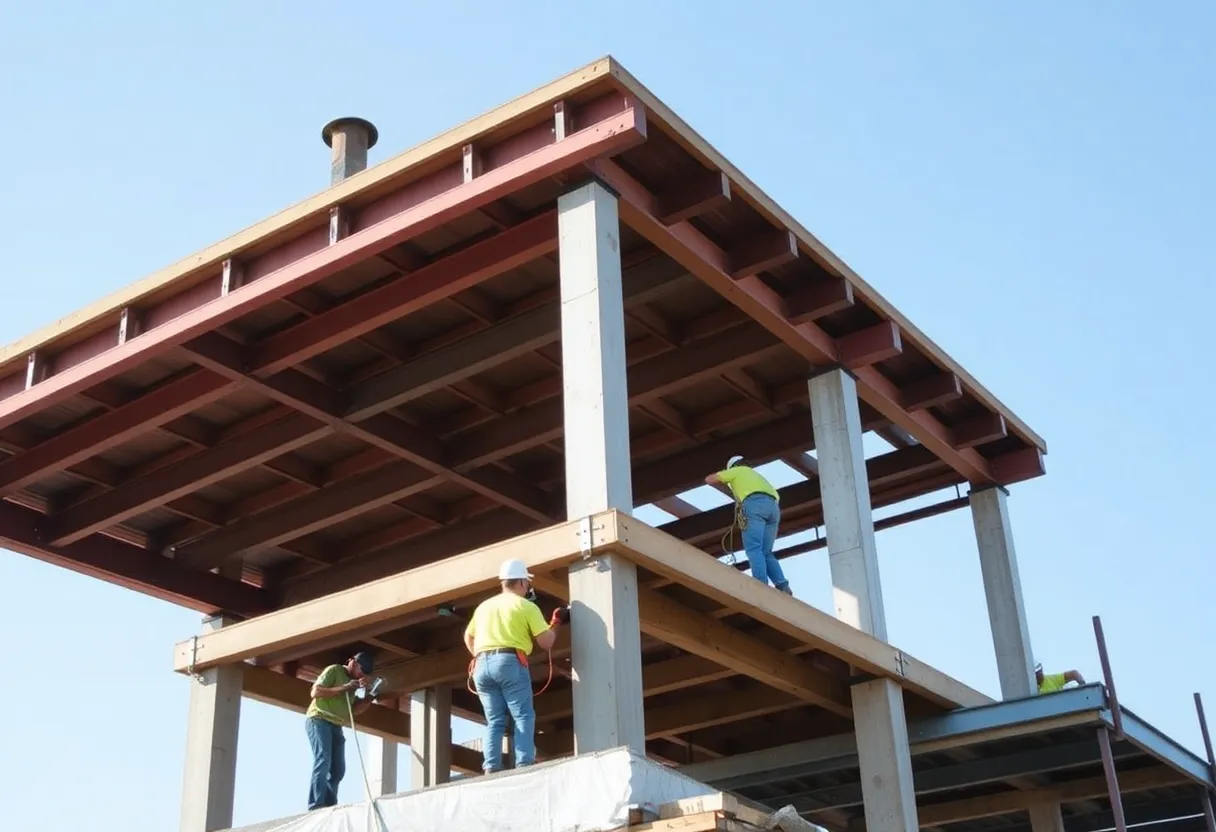News Summary
The construction industry is experiencing a decline in trust regarding AI adoption, with only 68% of leaders believing AI will positively impact their sector. This skepticism reflects a hype cycle phenomenon and highlights challenges related to data quality and the tech skills gap. Companies must focus on effective training and data governance practices to harness the full potential of AI. Despite ongoing concerns, early adopters are leveraging AI technologies to improve project management and decision-making. The future of AI in construction rests on ethical considerations and substantial investments in workforce development.
Decline in Trust and Pragmatic Approach Marks the Current State of AI Adoption in Construction Industry
Over the past few years, artificial intelligence (AI) has emerged as a potential game-changer for the construction industry. Tools like ChatGPT have brought AI into the spotlight, enticing industry leaders to explore its capabilities to enhance productivity, minimize rework, and decrease labor shortages. However, recent data reveals a startling decline in trust among construction leaders regarding AI’s effectiveness and benefits.
According to forecasts from Mordor Intelligence, the market size for AI in construction is on track to reach $14.72 billion by 2030. Nonetheless, Autodesk’s 2025 State of Design & Make report indicates a 14 percentage point drop in trust in AI among construction leaders since last year. Currently, only 68% believe AI will positively impact the industry, down from 80% in the previous year. Concurrently, 44% of leaders express concerns that AI could destabilize the construction sector.
This decline in optimism reflects a typical technology hype cycle, placing the construction AI landscape firmly within the “trough of disillusionment” stage of Gartner’s Hype Cycle. Various challenges contribute to this skepticism, including the crucial need for clean and structured data, which is often absent in construction settings. Many AI solutions are designed to perform optimally with complete, high-quality data. However, ongoing fragmentation within systems complicates this need.
AI models require training on construction-specific data to produce accurate outputs. When this data is lacking, AI’s potential remains limited. Additionally, there is a general absence of effective technologies that adequately address critical challenges faced by the construction industry, further fostering doubt regarding AI’s impact.
Implementing AI successfully goes beyond technology adoption—it requires a shift in mindset and effective change management. The advent of AI has also unveiled a significant gap in technical skills within the construction workforce. Skilled operators and data managers are essential; however, companies are lagging in training and upskilling their personnel to embrace AI effectively. This skills gap is often rooted in budget constraints and a misalignment between available AI offerings and operational needs.
To tackle the AI skills gap, companies must prioritize effective training programs and assess organizational readiness for AI adoption. Many construction firms find themselves still in the discovery phase, merely exploring AI’s capabilities rather than implementing it widely. 47% of leaders worry about identifying the right use cases for AI, while only 32% report that they have achieved their AI implementation goals.
Despite the challenges, some early adopters are focusing intently on data technology and AI. Leaders emphasize the importance of interconnected data systems, which can vastly improve the design process, enhance communication, and streamline project management. AI can assist in executing projects and managing budgets effectively. Moreover, AI tools can conduct constructability checks and highlight potential design issues before construction commences, ensuring smoother project progress.
AI-assisted solutions can also generate more accurate project bids and estimates by analyzing historical data and trends. By summarizing design changes and identifying inconsistencies in models, AI helps drastically reduce errors in coordination. Moreover, safety on job sites can see tremendous improvements through AI’s capability to analyze conditions and predict risk areas based on data generated from Internet of Things (IoT) devices.
AI-powered automation can also significantly expedite project closeouts by assembling necessary documentation and facilitating swifter approval processes. Companies looking to gain immediate benefits from AI should consider implementing it in areas that currently generate tedious work. This approach allows for tangible impacts rather than focusing solely on futuristic use cases.
Establishing solid data governance practices is essential to ensure data quality and integrity, thereby fostering trust in AI systems. Continuous investment in training and workforce development should be viewed as integral components of an effective AI strategy. Autodesk has been at the forefront of this evolution, developing a range of AI tools designed to help construction teams enable smarter work processes and more effective project execution.
Ultimately, the future of AI in the construction sector will depend not only on the pace of technological adoption but also on ethical considerations and a significant investment in people. Leading construction firms are positioning themselves strategically to harness AI’s transformational potential as technology continues to advance.
Deeper Dive: News & Info About This Topic
Additional Resources
- Data Center Dynamics
- Wikipedia: Artificial Intelligence
- Pulse 2.0
- Encyclopedia Britannica: Artificial Intelligence
- Autodesk Blog
- Google Search: AI in Construction
- Facebook Engineering
- Google News: AI in Construction
Author: Construction FL News
The FLORIDA STAFF WRITER represents the experienced team at constructionflnews.com, your go-to source for actionable local news and information in Florida and beyond. Specializing in "news you can use," we cover essential topics like product reviews for personal and business needs, local business directories, politics, real estate trends, neighborhood insights, and state news affecting the area—with deep expertise drawn from years of dedicated reporting and strong community input, including local press releases and business updates. We deliver top reporting on high-value events such as the Florida Build Expo, major infrastructure projects, and advancements in construction technology showcases. Our coverage extends to key organizations like the Associated Builders and Contractors of Florida and the Florida Home Builders Association, plus leading businesses in construction and legal services that power the local economy such as CMiC Global and Shutts & Bowen LLP. As part of the broader network, including constructioncanews.com, constructionnynews.com, and constructiontxnews.com, we provide comprehensive, credible insights into the dynamic construction landscape across multiple states.





